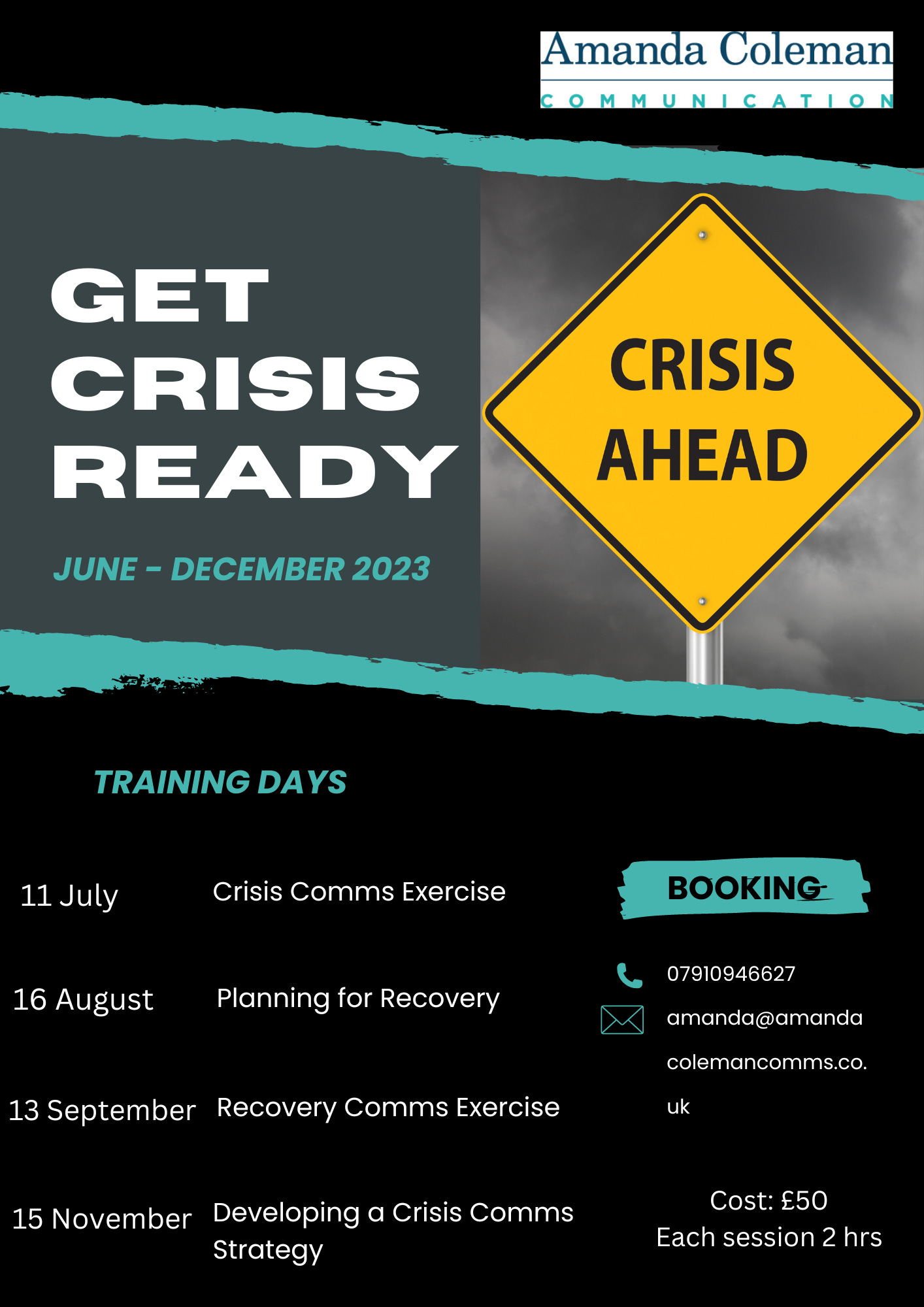Caring for those Affected by Crisis
Despite many reports and lots of research that highlights the impact and stress that those caught up in a crisis face, there continues to be little change. Both the media and social media add to the pain of tragic situations.
In the aftermath of 2017 and a series of terror attacks and the Grenfell fire in London there was a focus on how things could be improved, what more support should be available for families dealing with the loss of a loved one, and how the media should approach such situations.
The recent horrific incident in Nottingham, in the UK, has highlighted how little has changed despite all the talk. The families of the victims released their own photographs and urged the media not to trawl through Facebook and other social media to grab other images.
When I am training teams I urge them to read the book by Professor Lucy Easthope - When the Dust Settles. It gives a real insight into what happens when the initial response disappears and people are left to try and make sense of the most terrible situations. There is also a document on media reporting terror attacks produced by the Survivors Against Terror group. Find out more about it here.
What do we need to remember as communicators when a crisis happens? First, listen to those who are directly affected by what has happened. What are they feeling? How has it affected them? Use that information to ensure that your communication is as it should be. Second, try to see the crisis from the outside in, what are people seeing and hearing. Take yourself out of the organisation and into the streets. Third, prioritise support to those struggling with the aftermath of a situation. The way that you support those affected will have a significant impact on how the response is viewed.
If you have any questions about developing a crisis communication response that is focused on supporting those affected get in touch.
Pandemic response in the spotlight
The UK Covid-19 Inquiry is now underway. It is expected to take around three years to complete the review of the planning, response and impact of the Government and other agencies response to the pandemic.
In the first few days it has already highlighted concerns that the UK Government was focused on Brexit at the expense of emergency planning, that planning was not as it should have been, and that financial constraints had impacted on the planning for disasters.
And in recent days the focus has been on the impact of austerity measures on preparedness and levels of resilience. For anyone working in crisis, emergency and disaster management the Inquiry will be one to watch in the coming months and years.
But it is vital to ensure that any immediate changes required in reviewing the Covid pandemic are put in place now. It is clear this is an uncertain world and organisations need to be ready.
In addition the European Parliament has agreed to improve crisis preparedness and emergency planning for future health emergencies. Find out more here.

Crisis Comms for Public Sector
A crisis communication masterclass for public sector communicators is being provided over two days by Amanda. The sessions on 6 and 7 July are part of the Westco Academy. Among the subjects that will be discussed are how to be prepared, tackling fake news, the impact of AI, psychology and engaging with communities in a crisis.
If you are interested in the sessions they take place between 10am and 1pm on 6 and 7 July. Find out more here.
Training Update
The next training organised by Amanda is a crisis communication simulation that takes place on 11 July. The session will get you to consider your approach and what actions you would take as a scenario develops.
In August and September the focus is on recovery with a session on recovery planning and moving forward and an exercise to consider how and when to make the move from crisis to recovery.
If you are interested in any of the sessions get in touch amanda@amandacolemancomms.co.uk
In Brief:
The importance of communication and information sharing in a disaster is highlighted in an article for Psychology Today. The article explains that the right information at the right time can be empowering. Find out more here.
Concerned about long-running crises and what they mean for communication? Find out Amanda’s thoughts about polycrises and more in a recent article for Crisis Response Journal. Read more here.
Intelligence Security website has considered the cost of data breaches and highlighted the importance of good communication and not just relying on a general crisis plan. Find out more here.
Amanda Coleman Communications is continuing to link with Conducttr crisis management software to provide the real-life scenario system to clients. This is the second year that the system has been available through Amanda Coleman Communication and it looks set to be a bigger and better year ahead.
The European Union has outlined additional cyber security steps for 5G. Find out more here.
In a recent blog Amanda explored 10 myths about crisis communication and shared some facts. Read more here.
Any Emergency Planning Society members will be able to hear former FEMA responder and author of Promote the Dog Sitter, Ed Conley talk at a webinar on 12 July at 2pm BST. Check out the information via the Emergency Planning Society.
Diary Dates:
29 June Amanda is running a one day training course on Managing an In-House Communication team on behalf of the PRCA. Find out more here.
3 July Amanda is running her Making Better Decisions Under Pressure workshop for the PRCA. Find out more here.
11 July Amanda will run the latest crisis communication simulation. Places are limited and the two hour session costs £50. Email amanda@amandacolemancomms.co.uk to find out more



